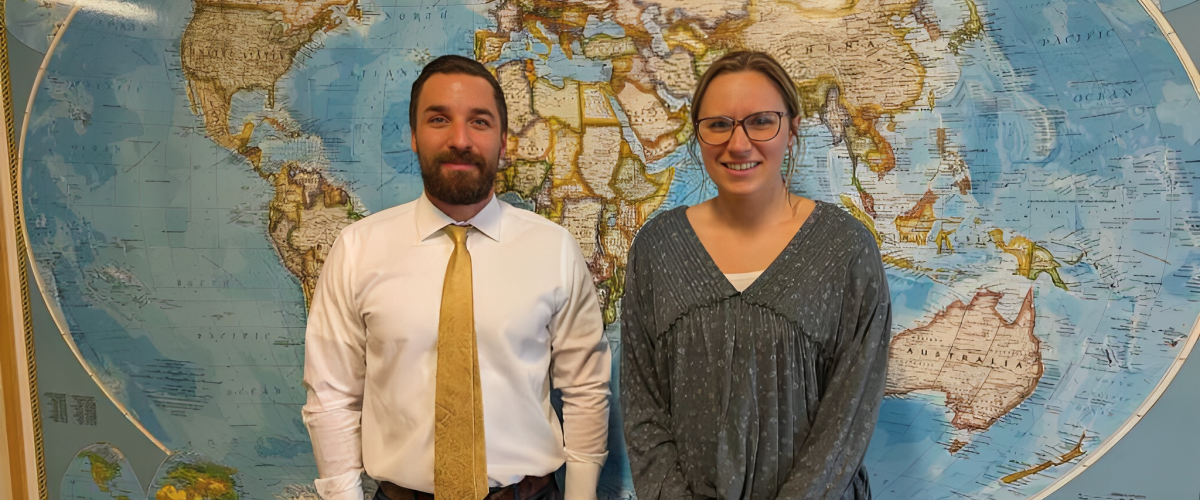
Almost 2,000 CU Denver students are veterans, active duty, or military-connected. Transitioning from service to civilian life can present challenges, and the steps can be unclear. Fortunately, the CIBERVets panel provided a platform for veterans Tyler Sullivan and Jaciel Suarez-Figueroa to provide insight into how military skills can transfer to civilian employment and advice on easing the transition from the military world to civilian life.
Problem-solving and teamwork are dominant military skills easily transferable and valuable in business. Focusing on the betterment of the collective, rather than outshining your teammates, is crucial for both those in the military and those in the corporate world.
These skills are only useful if successfully translated; luckily, the panel provided guidance on appropriately applying military leadership style and organizational success. According to the panel, communication is the best way to help ease skills transition. “There is nothing more valuable than communication,” said Sullivan.
Regarding the adjustment from military to civilian life, Sullivan highlights the importance of having a plan, saying, “A failure to plan is planning to fail.” Dedicating time to figuring out goals and beginning to pursue education and training can help guide the transition and improve job prospects. Research was also recommended; knowing information such as who is in charge of hiring, pay scale, and job location is important for anyone looking to enter the working world. Suarez-Figueroa recommended that veterans follow their hearts and passions and have a sense of adventure. “Fortune favors the bold,” said Suarez-Figueroa, “Don’t be afraid to try new things.”
For any skill and experience gaps, the panel recommended being confident in the skills you bring to the table. Anyone is rarely a 100% match for a job, so being confident in the skills you already have can lead to employment opportunities. “Soft skills are critical,” said Suarez-Figueroa. Skills like communication, teamwork, and adaptability can go far in bridging experience gaps. The panel also recommends further education and on-the-job training to fill other gaps.
Everyone’s transition will look different, and no “right” path exists. One study reported that a little under half of veterans who began service after 2001 felt that their transition back to civilian life was difficult. However, the same study said that over half of veterans felt like the skills they learned in the military helped prepare them for civilian employment. The speakers reinforced the importance of remaining flexible and adaptable while using the network you created in the military to help foster new connections in the civilian center.
For more information about the CIBERVets program at CU Denver, click here. The group’s flagship event, “Recruiting Tomorrow’s Global Leaders,” will be held on April 3rd, 2024, and the event information and registration can be found here.


